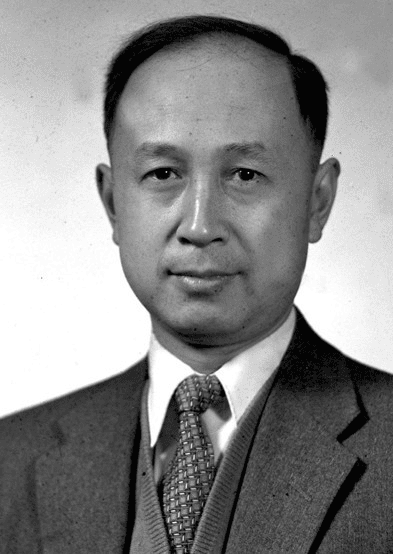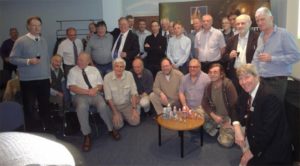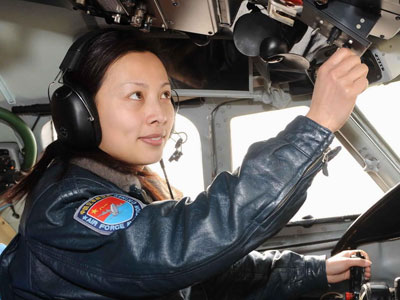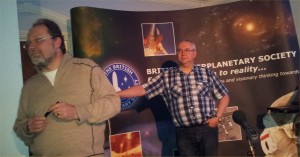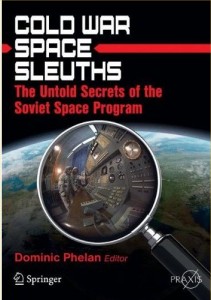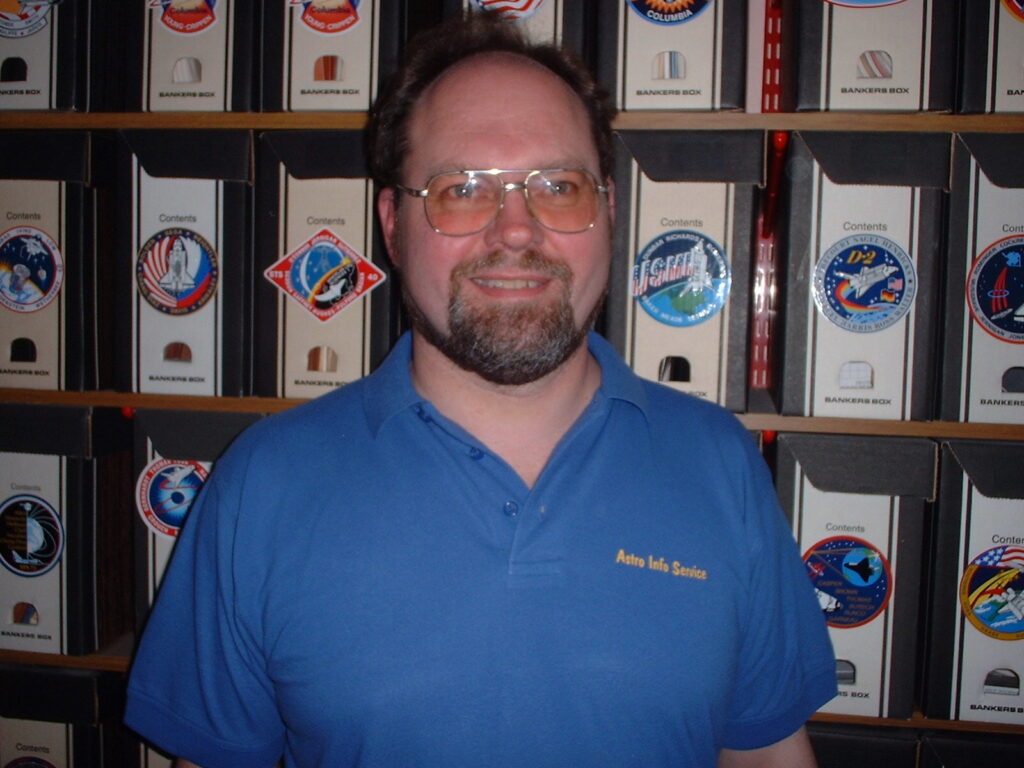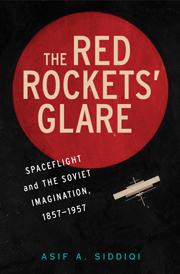
Title: The Red Rockets’ Glare : Spaceflight and the Soviet Imagination, 1857–1957
Publisher: Cambridge University Press
Author: Asif A. Siddiqi
ISBN: 9780521897600
Price: £58.00 [414 pages hardcover]
This is probably the most meticulous analysis of the culture of an insecure, troubled and courageous people: the Soviets and those that preceded them, who collectively pulled off one of the 20th century’s most spectacular achievements – the launch of Sputnik in October 1957.
The book re-examines and challenges the popular perception of the two almost revered individuals responsible for what came to be known as the Soviet space program: Konstantin Tsiolkovsky, who laid down the initial theoretical framework for space travel, and Sergei Korolev, the persecuted selfless chief designer, who put it into practice.
Starting with events from 1857 and culminating a century later with the launch of Sputnik, the fluent Russian speaking author, using primary sources many being examined by Western eyes for the first time, identifies the complex interplay between the pursuit of space technology and the potential of that technology as an instrument for social and industrial change.
Just as it is impossible in the history of science to untangle astronomy from astrology or chemistry from alchemy, the author establishes the deep connections between the Cosmist Movement and the thread of imagination running through the Soviet people and those that preceded them. The author connects the almost mystical role of Nikolai Fyodorov the founder of the Cosmist Movement in stirring the imagination of a people to believe in the reality of a future beyond that on Earth.
The book reminds us that the Soviet’s launched their first liquid fuel rocket on 25th November 1933 seven years after America and two after Germany. It was in no way inevitable that the Soviets should have been the first nation to travel into space.
The 1917 the Russian revolution was slap bang in the middle of the period examined by the author (1857-1957). Initially ostracised and abandoned because he had done most of his ground breaking work during the Tsarist period, Tsiolkovsky was eventually recognised for his achievements by the Bolsheviks just before his death in 1935. Stimulated by the initial stages of the Cold War in the immediate aftermath of the Second World War, the nationalist movement “Zhdonvschchina” forcibly connected science with national identity and helped secure enormous resources required for the Soviet atomic bomb program, but also helped establish many of the closed government processes and secret industrial complexes that would be necessary for the space program.
Tsiolkovsky’s Russianness was used shamelessly to promote Soviet society through space exploration. The Soviet Academy of Sciences eventually recognised his contribution by publishing his memoirs in 1951. His writings on Cosmism were systematically suppressed but those on space travel re-spun to motivate public opinion and influence state policy. The author establishes how Tsiolkovsky’s name was exploited to manipulate the emotions of the Soviet people and motivated the Soviet government to commit resources to assert Soviet dominance in space. So powerful is that connection that it is unlikely there would have been Sputnik had Tsiolkovsky not been Russian.
The book is full of minute but fascinating detail, and despite the overly academic style remains surprisingly easy to read. For example the origin of the word “cosmonautics” was first introduced by the French educated Ary Sternfeld, who settled in Moscow after a trip to meet with Tsiolkovsky. In the wealth of documents declassified in the post Soviet era, one from 1937-8, “Stalin’s Execution List” records 44,000 individuals of which around 90% were executed. Sergei Korolev was on that list, one in the 10% that was mysteriously spared.
Exploiting the media to engineer public opinion in support of space travel was not a post Sputnik phenomenon initiated in America. On 16th April 1955 Mikhail Tikhonravov (who had originally proposed Sputnik) and Korolev published a piece in a local paper Evening Moscow to stimulate local (Soviet) interest in space exploration. But an unexpected response in the New York Times fired the starting pistol that would lead eventually to what became the Space Race. This was the seed that blossomed into the Soviet/US epic rivalry that would be so evident during the Apollo era and ultimately was responsible not only for mankind’s first landing on the Moon but also for achieving that astonishing feat with such incredible haste.
A surprising omission from this book is the work of Nikolai Kibalchich. Frequently overlooked in the West and another opportunity lost here. In his far-sighted contribution under extraordinary personal circumstances in 1881, Kibalchich proposed a design for rocket propulsion two decades before the Wright Brothers demonstrated powered flight.
Juxtaposed to the richness of the content, the cover illustration is remarkably unexciting. I found no artistic merit in it but that probably says something more about my artistic sensibilities. Apparently, the cover is a valued piece of art work on display in a museum. This serves as a fortunate reminder of the old maxim that you shouldn’t judge a book by its cover.
The book is written and designed for the academic environment but it has much to offer those who are curious about the origins of the Soviet space program. The publishers ought to consider releasing an eBook and/or a paperback copy with fewer references and a significant price cut and thus bring this fascinating content to the attention of many of those who would appreciate the rich detail of a beguiling episode in human endeavour.
